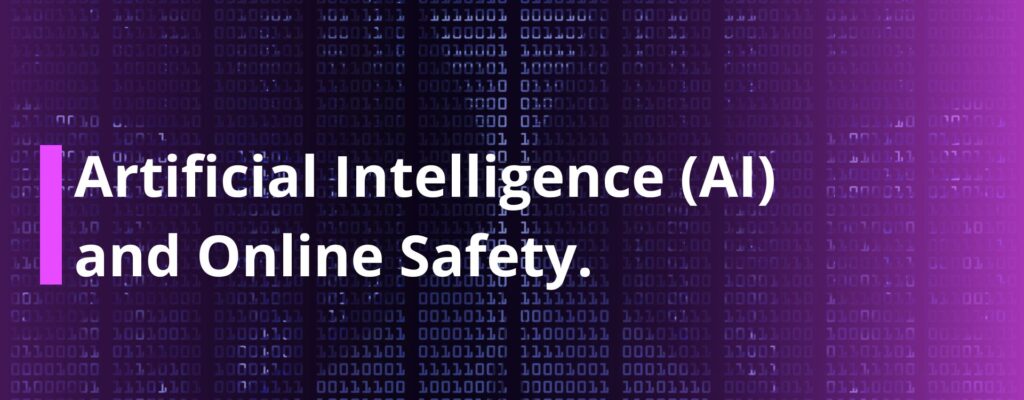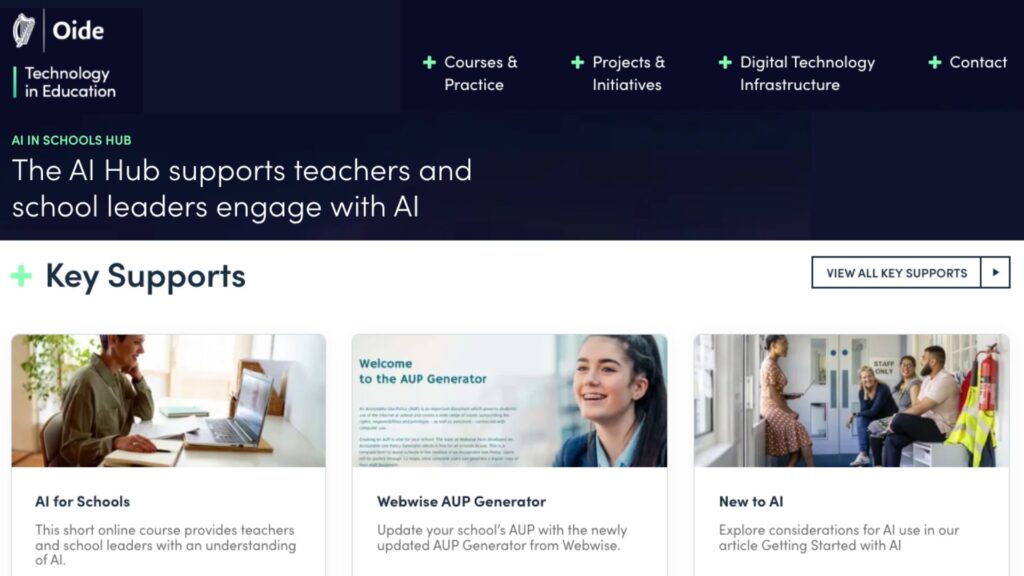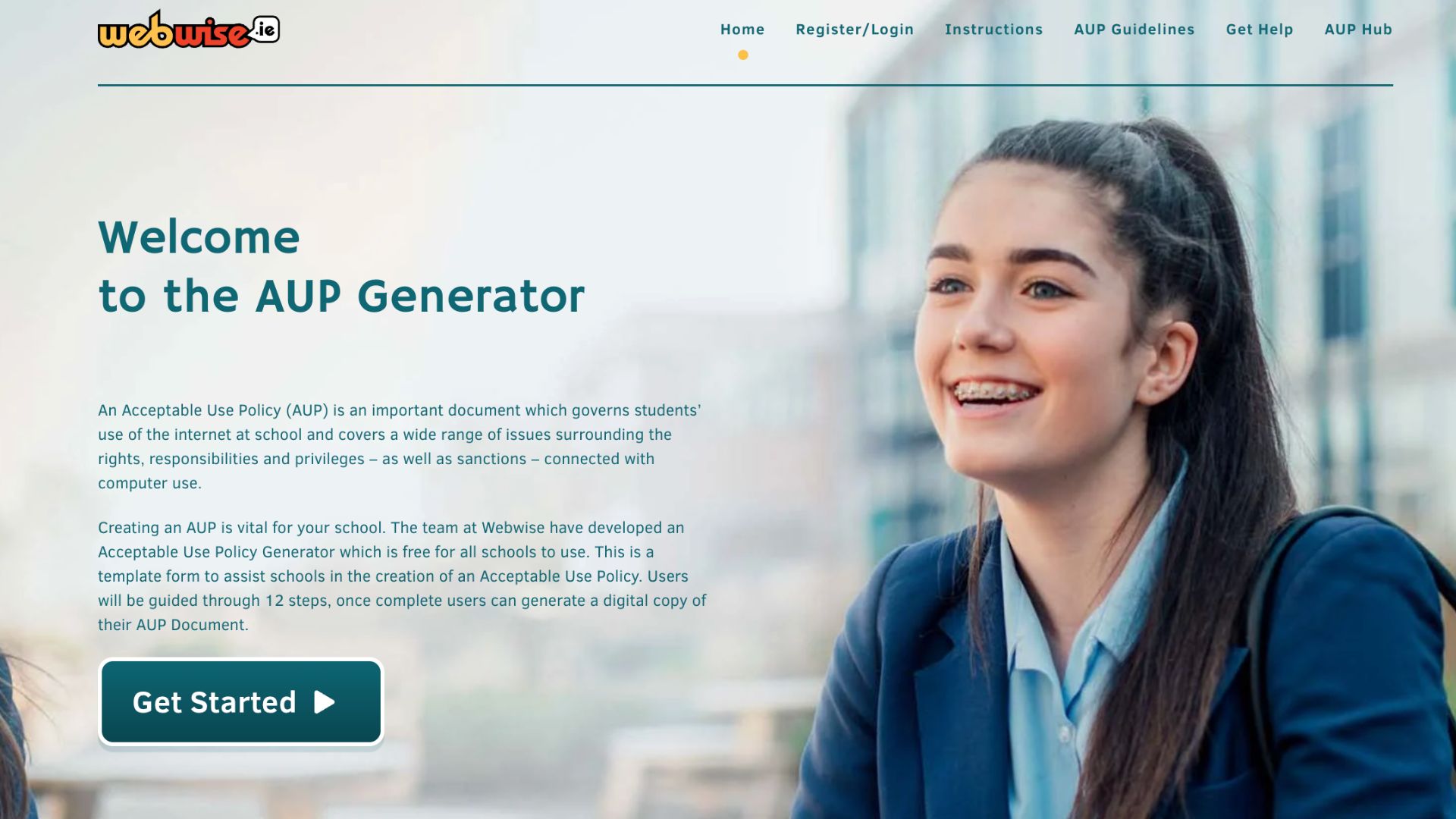AI and Online Safety
Find information and resources on artificial intelligence (AI) and online safety, how AI it can benefit and support users, as well the current limitations and concerns about its use.


AI in Schools Hub
The Oide Technology in Education AI in Schools Hub supports teachers and school leaders to engage with AI.
Learn about how to get started, key supports, videos, projects, research and insights.
What is Artificial Intelligence?
Artificial Intelligence (AI) refers to computer systems designed to perform tasks that usually require human intelligence. It uses algorithms—sets of rules or steps—to analyse, understand, and respond to information. AI can process vast amounts of data to recognise patterns and make predictions but cannot think or understand context like humans. Since its beginnings in the 1950s, AI has rapidly evolved, especially with the rise of Generative AI (Gen AI)—tools that can create new content such as text, images, audio, and video based on existing data.
AI is part of everyday life: virtual assistants like Siri and Alexa, recommendation systems on Netflix or YouTube, social media algorithms that personalise feeds, and mapping tools like Google Maps all use AI. While AI and Gen AI bring benefits such as efficiency, innovation, and personalised experiences, they also pose challenges—responses can be biased or inaccurate, information requires checking, and issues around data privacy, security, and ethics continue to emerge.
AI and Online Safety for Schools
Artificial Intelligence systems and tools are already part of our everyday lives. As AI continues to evolve, it is important to be aware of the benefits and the risks it can have in teaching and learning.
This technology has the potential to transform education, so it is important for educators and students to understand how to ethically, critically and positively engage with AI in order to make the most of its potential. It’s important to note that AI can compliment, but not replace a teachers’ expertise. The human element a teacher brings to the classroom will still be crucial to fostering meaningful learning experiences.


AUP Generator
An Acceptable Use Policy is an important document which addresses all rights, privileges, responsibilities and sanctions associated with the use of the internet and digital technologies within the school, including online and offline usage.
The AUP Generator Tools also includes sections with statements intended as a guide for schools to collaboratively review, discuss, and agree upon their approach to integrating AI into learning, teaching, and assessment.


